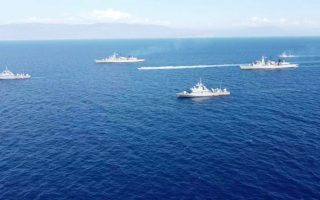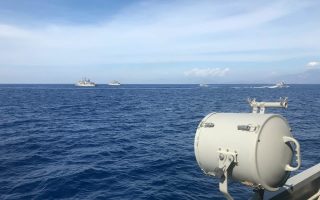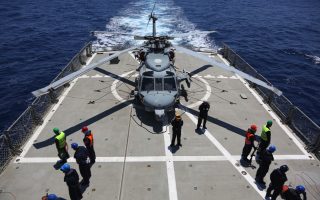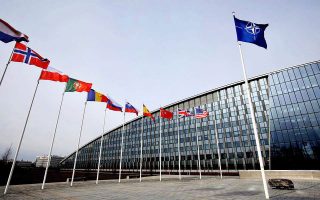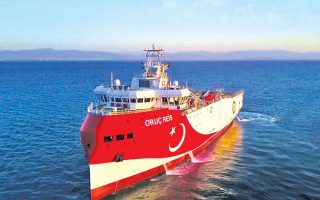Athens bracing for Ankara’s next move
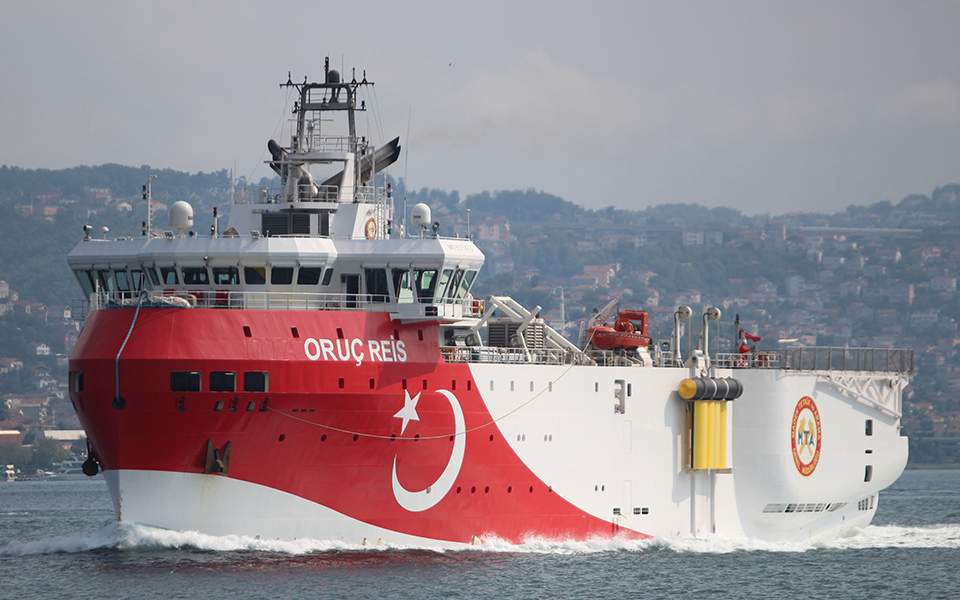
With Turkey’s navigational notice (Navtex) reserving areas south of Kastellorizo for its Oruc Reis seismic survey vessel expiring on Thursday, Athens is bracing for Ankara’s next move in the Eastern Mediterranean.
According to reports from Turkey, including the government-affiliated Yeni Safak daily, the Oruc Reis’ presence will be extended with a new Navtex.
The most obvious concern in Athens is the possibility that Ankara will activate its Yavuz rig, which is currently in the Eastern Mediterranean, to commence drilling in areas within the Greek continental shelf that were surveyed by the Oruc Reis. Greek officials estimate that the most likely point for possible drilling activity by the Yavuz is an area where the Greek, Cypriot and Turkish continental shelves meet, around 100 nautical miles from Kastellorizo.
Meanwhile, the leaders of Cyprus, Egypt and Greece on Wednesday urged Turkey to end its “aggression” in the East Med and renewed their invitation to Ankara to be a partner in reaping the potential benefits of hydrocarbon reserves in the region.
Speaking after the trilateral summit in Nicosia, with Cypriot President Nicos Anastasiades and Egypt’s Abdel-Fattah al-Sissi, Greek Prime Minister Kyriakos Mitsotakis said the timing of the meeting “coincides with additional dangers that are unfortunately created by Turkey’s leadership,” which is “entertaining imperial fantasies with aggressive actions stretching from Syria to Libya and from the Aegean to the Caucasus.”
“I’ll say it again that Turkey could also take part in our (partnership); no one excluded it outright,” Mitsotakis said. “But more often than not, it is marginalized by its own actions unfortunately,” he said.
Ahead of a NATO defense ministers’ teleconference on Thursday, alliance chief Jens Stoltenberg reiterated his concern about “increased tensions” in the Eastern Mediterranean and developments with the Russian S-400s in Turkey.
He said that NATO wants to contribute to de-escalation through the unblocking of the deconfliction mechanism to which Greece and Turkey recently agreed.

